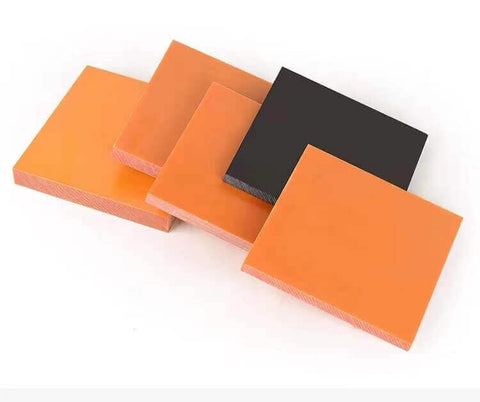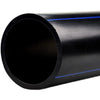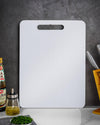Bakelite plastic was once heralded as a groundbreaking innovation that permeated numerous industries. But over time, the limitations and disadvantages of Bakelite have become more apparent. This article delves into the historical context that led to Bakelite's rise and fall, while analyzing its durability issues, environmental impact, and common problems that shed light on why Bakelite is less prevalent today compared to modern plastics.

The Historical Context: Bakelite's Rise to Fame
Bakelite was patented by Belgian-American chemist Leo Baekeland in 1907 and was the first fully synthetic plastic ever created. This was a major breakthrough at the time, as prior plastics incorporated organic materials like cellulose. Bakelite, however, was derived entirely from petroleum and coal tar residues, making it a purely industrial product.
The invention of Bakelite coincided with the rise of mass production, as Henry Ford had begun producing automobiles using assembly lines just years prior. Bakelite’s heat resistance, rigidity, and electrical insulation properties lent itself nicely to mass production methods. And compared to shellac, the most common plastic of the era, Bakelite was far cheaper and could be molded into intricate detailed shapes.
Consequently, Bakelite rapidly gained popularity in the 1920s as more consumer goods shifted from natural materials to plastics. Bakelite jewelry, appliances, telephones, cameras, and even billiard balls exemplified the diverse applications of this new wonder product. For a while, Bakelite seemed to usher in a new modern age of infinite plastic possibilities.

Durability Concerns: Is Bakelite Built to Last?
Given that vintage Bakelite products have survived into the 21st century, it may appear that Bakelite has stood the test of time. However, Bakelite has become increasingly brittle and prone to cracking or chipping over the decades, requiring careful handling. Bakelite’s rigidity also makes it difficult to repair or mend objects if damaged.
While pure Bakelite maintains its solid shape, it lacks the flexibility and impact resistance of many common modern plastics. Items like acrylic glass or polycarbonate can deform slightly under pressure rather than shattering. Extended exposure to heat and sunlight also degrades pure Bakelite faster than more advanced plastics.
Bakelite telephone cases and kitchenware may seem quite durable compared to their modern disposable counterparts. But plastics like polypropylene used in current appliances can take considerably more abuse through daily use without wear and tear over many years of operation. And they can easily be recycled after disposal rather than lingering in landfills.
So while Bakelite transformed the plastics industry in its heyday, its long-term resilience does not always stack up to the demands of contemporary lifestyles. The brittleness of vintage Bakelite necessitates careful preservation efforts.

Environmental Impact: Bakelite's Footprint
Aside from durability concerns, Bakelite’s environmental impact has come under scrutiny as green living has gone mainstream. Producing Bakelite requires formaldehyde, a known carcinogen that off-gasses from Bakelite products. The petroleum-derived creation process is also energy-intensive, releasing greenhouse gases.
Once discarded after use, Bakelite’s infusibility makes it difficult to recycle or repurpose, unlike thermoplastics that can be reshaped and remolded repeatedly. And with no microorganisms able to decompose Bakelite’s phenol-formaldehyde polymer chains, it persists for centuries after disposal.
Modern bioplastics like PLA (polylactic acid) have emerged as an alternative, using renewable plant-based sources instead of petrochemicals. PLA bioplastics can decompose naturally through composting and expose consumers to far fewer harmful emissions when producing products. While Bakelite revolutionized the plastics industry in its time, today’s quest for sustainability requires environmentally-conscious options.

Modern Alternatives: Why Bakelite is Less Used Today
Given Bakelite’s durability and environmental limitations, it’s understandable why other plastics have almost entirely replaced Bakelite across consumer and industrial domains. Modern thermoplastics like polypropylene and polyethylene terephthalate (PET) excel in versatility, cost-effectiveness, and performance.
Polypropylene, for example, offers flexibility while retaining excellent heat resistance able to withstand dishwasher and microwave use. Products from plastic water bottles to automotive parts utilize polypropylene for unbeatable ruggedness and insulation properties meeting today's high performance benchmarks.
Meanwhile, PET provides affordable clarity and shatter-resistance making it ideal for drink and food containers along with myriad other translucent applications. And both polypropylene and PET are recyclable and produce negligible emissions when manufactured using best practices.
While no plastic is perfect, modern polymers deliver tailored combinations of thermal stability, impact resistance, and ease of recycling that Bakelite cannot match. Supplementary materials like fiberglass can further bolster strength and durability where needed. The future lies in developing safer, sustainable alternatives to petroleum-derived plastics, but Bakelite’s limitations make it unsuitable for current needs.

Common Issues with Bakelite Products
Beyond the overarching disadvantages already covered, Bakelite products suffer from several issues consumers should keep in mind:
- Discoloration – Bakelite often yellows with age and extended UV exposure. Keeping items out of sunlight can minimize this effect.
- Brittleness – Old Bakelite tends to become brittle and prone to cracking if mishandled. Gentle care is required.
- Noxious fumes – Heating Bakelite products can release formaldehyde fumes, posing health risks. Use caution when handling near heat sources.
- Asbestos - Some vintage Bakelite incorporated asbestos fibers, which can cause mesothelioma if inhaled. Wear protective gear when machining old Bakelite stock.
- Flammability – Bakelite is flammable and burns rapidly at high heat. Keep fire extinguishers on hand given its combustibility.
- Repair difficulties – Once broken or damaged, Bakelite cannot be reliably repaired or re-molded. Replacement parts or products may be the only option.
While Bakelite heralded the plastics revolution, its advantages came with numerous chemical drawbacks. Handling genuine vintage Bakelite requires ample care and safety precautions compared to most common modern plastics.
Although Bakelite marked a pivotal breakthrough as the first fully synthetic plastic, its characteristics reflect an early stage in polymer development preceding modern innovations. While vital in its time, Bakelite’s costlier production methods, brittleness, toxic emissions, and disposal challenges make it ill-suited to today’s needs.
Much progress has occurred in designing affordable, durable, and eco-friendly plastics thanks to advances in polymer chemistry and green technology. But Bakelite will remain a testament to the early strides in transforming how industries and consumers utilize plastics, even if its long-term utility has proven limited. As environmental awareness grows, a balance must be found between plastics’ benefits and drawbacks through responsible development and usage.







